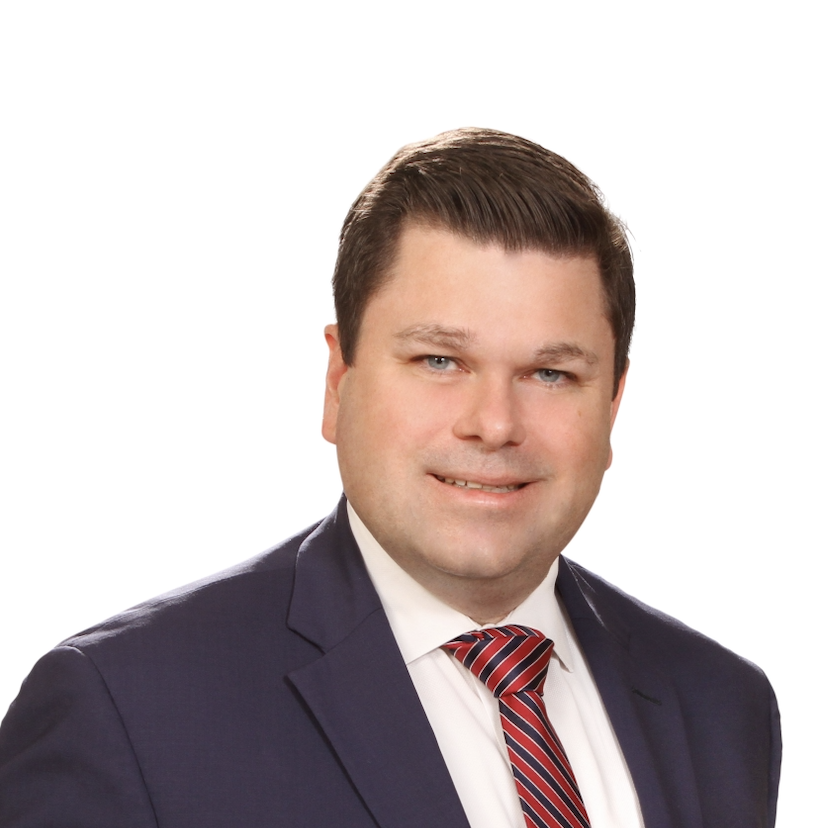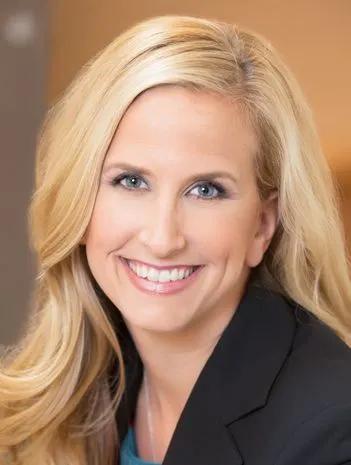[Updated:] What Impact Will the FTC’s New Rule on Non-Compete Clauses Have on Healthcare Providers
If the rule goes into effect as is, the dental associate relationship with practice owners would change dramatically.
What Impact Will the FTC’s New Rule on Non-Compete Clauses Have on Healthcare Providers | Image Credit: © iQoncept - stock.adobe.com

[Updated: This article was originally published on May 30, 2024. This updated version includes details on the federal judge’s recent decision to block the FTC’s ban on noncompetes and what it means for dentists and other physicians going forward.]
With a federal judge’s decision in August to block a near-total ban on worker noncompete agreements on grounds it ran afoul of the agency’s legal authority, Amanda Hill of the Hill Health Law Group, suggests dentists and physicians should fight for reasonable and narrowly tailored agreements, considering that noncompetes will most likely be in place for some time.
"Dentists and doctors are not going to get relief from the Federal Trade Commission, but it doesn’t mean that the conversation is over," says Hill. "Contracts have always been a state law issue, and it’s going to be the states who change the tide. I’d encourage all dentists to argue on a local level to fight for more reforms.
"Sure, a reasonable non-compete around a small local practice may make sense. But it doesn’t mean that large dental groups with multiple locations and the ability to recruit and hire other dentists should stop a dentist from practicing in the community where they live and work."
Hill adds that the judge's ban means well and may also lead to reforms at the state level that could benefit dental professionals seeking more opportunties than currently available because of noncompoetes.
"I think the ban has a good intention — to show that many workers, including those in healthcare, are being squeezed. And it’s not fair to ban a worker from a large area simply because the organization says it wants to 'protect their investment.' Dentists spend years honing their own skills and working to build relationships patients — it’s the dentist that brings the expertise, not the other way around."
For now, non-competes may still exist. But it’s shedding light on the practice as something to pay attention to, and it may yield traction on local state levels to create reasonable reform," Hill explains.
In August, Judge Ada Brown of the US District Court for the Northern District of Texas ruled in favor of the plaintiff in the much-anticipated Ryan LLC v. FTC
case. The court stated that the FTC doesn’t have the authority to ban practices it deems unacceptable, Hill explains. Brown added the FTC exceeded its statutory authority in implementing this rule and stated the ban was arbitrary and capricious.
Below is the original article published in May at dentalproductsreoport.com.
When the Federal Trade Commission (FTC) finalized a rule banning non-compete clauses last month (April of 2024), it not surprisingly stirred concerns among physicians and dentists alike about their contracts and the rules they must follow. This decision could raise more questions than answers if it becomes law.
The FTC split 3-2 on the new rule about contract clauses that affect physicians and other health care workers—voting to ban noncompete clauses between employers and workers, calling the agreements unfair restrictions on trade that hurt employees and stifle innovation.
“Non-compete clauses in employment agreements are regulated by state law, with varying levels of restrictions across states (with some banning them outright). However, the new FTC rule introduces a new ban, which some view as a political maneuver rather than a measured approach benefiting physicians,” says Amanda Hill, JD, a health care attorney based in Austin, Texas.
“As much as I’d like to see non-competes banned so my clients can have freedom of where to work after they quit a job,” says Hill, “I’m worried this ban seems problematic in its scope and breadth.”
If the rule goes into effect, it would have a significant impact on dentists in particular, since most dental associate agreements currently contain a non-compete clause.
Brent Pohlman, a labor and employment partner in Mandelbaum Barrett PC’s practice group, says this process first got underway when President Biden’s administration came into office in 2021. Pohlman says President Biden had indicated an intent to address an overt expansion of the use of non-competition agreements, against lower wage earners, specifically, the fast food industry. Then, in January of 2023, the FTC issued their
Brent R. Pohlman, partner, Mandelbaum Barrett PC

proposed rule regarding non-competition agreements and the proposed rule which was more expansive than what the administration talked about, Pohlman explains. Basically, the FTC suggested placing an absolute ban on all non-competes, and it would have had less exemptions and exclusions than the final rule, which was voted on on April 23. 2024.
“What was proposed in January of 2023 was more stringent or had less exemptions or exclusions, then the final rule that was just issued, particularly with respect to the sale of a business and with respect to what type of employees could be excluded from the scope of the rule,” Pohlman says. “I suspect that the reduction in the scope of the rule was the result of the significant amount of commentary that the FTC received during its public comment period.”
Hill adds “with over 26,000 comments to this initial rule, there were a lot of special interest groups at play espousing their opinions.”
At the time the FTC promulgated this rule a lot of the National Business Organizations, including the National Chamber of Commerce, made it known that they intended on challenging this. Pohlman suspects this along with other public commentary led the FTC to walk back some of what they had initially sought to regulate. “The FTC likely was motivated by the anticipated legal challenges and revised the rules to, in the FTC’s opinion, be able to better withstand a legal challenge,” he adds.
The FTC rules would go into effect 120 days after publication in the federal register, and as of early May, the rules had yet to be published. Also, Pohlman points out, at least 3 legal challenges have already been filed against this rule.
“The arguments being asserted are that the FTC went beyond the scope of its authority in issuing this rule,” Pohlman explains. “The question is whether the FTC’s action exceeded its rule making authority and falls into the realm of the legislative powers of Congress, and that by enacting this rule, the FTC usurped the authority of Congress, and that any regulation or ban on non-competition agreements would have to go through Congress.”
Amanda Hill, JD

Each of the lawsuits assert differing argument ideas, but the overarching argument against the rule that was promulgated by the FTC is that it goes outside its authority.
Hill adds, “The U.S. Chamber of Commerce brief made some good points. It argues that the rule was overreaching past the commission’s authority and even went on to say the rule would cause harm.” It remains to be seen how and when these lawsuits will be resolved.
The final rule bans non-compete agreements for workers with the exception of senior executives earning $151,164 annually and are in a “policy-making position.”
“But what does that mean?” Hill asks. “Does a partner in a practice mean they influence policy? The definitions are vague, adding to the uncertainty and opening this up for many legal challenges in the future.” says Hill, who writes for Dental Products Report sister publication Medical Economics.
“What does a ‘senior executive’ mean exactly? Only time will tell on how that definition is fleshed out. The rule indicates that this is a ‘small, narrowly defined group.’ Mostly the rule seems to exclude healthcare providers as not meeting the test, but it also says that partners in a business, such as members of an independent practice, would ‘generally qualify as senior executives under the duties prong and have authority to make policy decisions about the business.’ It goes on to say ‘CEOs and Presidents are presumed to be in a policy-making position under § 910.1 and will not be otherwise subject to a job duties test, while highly paid workers in a non-executive role such as many physicians will not.’”
“It’s a bit of a mess,” Hill repeats. “If the FTC had been more narrowly tailored and didn’t try to bite off so much, it may have made more sense. But trying to knock out all of the nation’s non-competes in one swoop may come back to haunt them.”
So What Would Happen for Dentists?
If this non-compete rule becomes official, then dental associates would no longer be restricted from going to work for another practice nearby, or from opening their own practice in the vicinity. Currently, it is common with non-compete clauses to preclude associates from working for a dental practice and from providing dental services from being an owner of a dental practice, within say ‘x’ number of mile radius around the office they currently work in. That radius varies, depending on the location and maybe even the size of the practice, Pohlman says.
“There would be a pretty significant impact because, almost all dental associate agreements contain a non-competition clause,” he says. “ If this rule goes into effect, non-competition clauses in employment agreements will be illegal. An associate will be able to open a practice right down the street from their current employer.”
But, it's important to understand what this rule doesn't do. The rule does not on its face address non solicitation provisions, which are provisions in an employment agreement that prohibit an associate from soliciting the patients of the employer’s practice.
“Now, while non-solicitation clauses are not prohibited, one thing practices have to be aware of is that if the non-solicitation provision is overly broad to the extent that it would essentially serve to prevent an associate from working in a geographic region the FTC may consider it to be a de facto non-competition clause and would prohibit,” Pohlman says. “So going forward, non-solicitation provisions are going to have to be carefully drafted to ensure that the clause is narrowly tailored.”
Pohlman adds that there are other federal regulations and rules that govern on non-disparagement clauses, and there is no change to such clauses through this latest FTC rulemaking process.
In terms of associate freedom and desires to move around, the rule may have different outcomes for larger practices and dental service organizations than it would for a solo practice with maybe just 1 associate.
“A lot of it's going to depend on the type and the size of the practice,” Pohlman says. “I think all associates would obviously prefer to not have a non-compete so they can go wherever they want whenever they want. They're going to be free to move about.”
From a practice perspective, this rule might impact practice growth. Pohlman believes a small practice may be less likely to bring on another associate if that clinician someday can turn around and be a competitor on the same block.
“Maybe a practice is going to be hesitant going forward to bring somebody on and introduce them to its patients and help the associate develop their career if the associate is just going to be able to leave and open up right up the street,” Pohlman says.
Pohlman cautions that even if the rules go into effect, the rules may be scaled back as “there are very strong arguments as to as to why the FTC does not have the authority to implement such a broad prohibition on non-competition agreements.”
Exemptions for Non-Profits and Bona Fide Sales
If a non-profit organization acts as a true nonprofit, it is not subject to the FTC’s jurisdiction or the non-compete ban, Hill states. Therefore, nonprofit companies such as hospitals, museums, charities, FQHCs, and research institutes may still be able to utilize reasonable non-competes.
But courts are divided on when a non-profit truly has a charitable purpose or whether they are designed to make their members a profit despite the IRS characterization, so this area of the law is unsettled, she adds.
The final rule does not apply to non-competes entered into by a person pursuant to a bona fide sale (a sale made in good faith, without fraud) of a business entity nor does it not apply where a cause of action related to a non-compete accrued prior to the effective date. “As a health lawyer,” Hill says, “I see both sides of this coin. But this rule just opens the door for more questions than answers, and does not provide relief. Instead of a more measured approach that may have had some real impact, this is an act of overreaching and useless political posturing allegedly designed to help the workforce.”
She adds that the rule may not provide the help that the healthcare industry desires. “Ultimately, while the FTC aims to protect workers from restrictive contracts, the healthcare community is left in limbo, calling for clearer guidelines and protections that balance both business interests and professional freedom,” Hill says.
This new rule highlights the ongoing struggle between regulatory actions and practical impacts on the ground, according to Hill. “What was meant to be a helpful ban for workers is turning into a legal battle that will likely stretch on for years. Dentists, like other healthcare professionals, need real answers, not overreaching rules that will likely be overturned.” Hill says.
A Positive Spin
One thing practice owners may want to consider should the rule go into effect, is attempting to make their place of employment one in which workers want to stay. For example, Pohlman says, for years the state of California has prohibited non-competition agreements and yet the tech industry has obviously flourished there.
Many tech companies stress good life-work balance and this may be a key in keeping some employees from wanting to leave and work for a competitor.
“Knowing that they can’t prohibit their employees from going to competitors, you always hear the tech companies talk about the quality of life to keep them invested and keep them working there,” Pohlman says. “This may push the [dental] industry to offer different types of ownership, pathways to partnership, better benefits and a better work-life balance to make the practice a more attractive place to work.”
Pohlman says the FTC’s rule, and any possible changes to it, or legal blocks, is something that most industries are watching closely, especially dental and physician workforces.
“It’s going to be a transformative event in not just employer-employee relations, but in business culture in the United States,” he says. “If the rules go into effect, the impact on employees outside of this dental industry will be significant. Currently, there are limits on mobility for sales people in all industries because of non-compete agreements, and the prohibition of those clauses will open up the labor market.”
But we’re not there just yet.
“Right now, we're looking at this from a 10,000-foot view. We are taking steps to educate our clients on the rule, its impact, and what options they will have in the event it is upheld. There is a lot of uncertainty right now,” Pohlman says. “We don't know if it's going to be stayed. We don't know what the ultimate outcome is going to be.”
The key for now is to be aware of the rule, and be prepared to conduct business regardless of the outcome of the legal challenges.
“At the end of the day it’s a balancing act,” Hill says. “Dentists want to own their own practice and have vibrant businesses, and yet smaller groups want to protect the assets they worked so hard to build. The key is using this ban as a catalyst for change on the local and state level, so that eventually the dominant voices will be heard.”